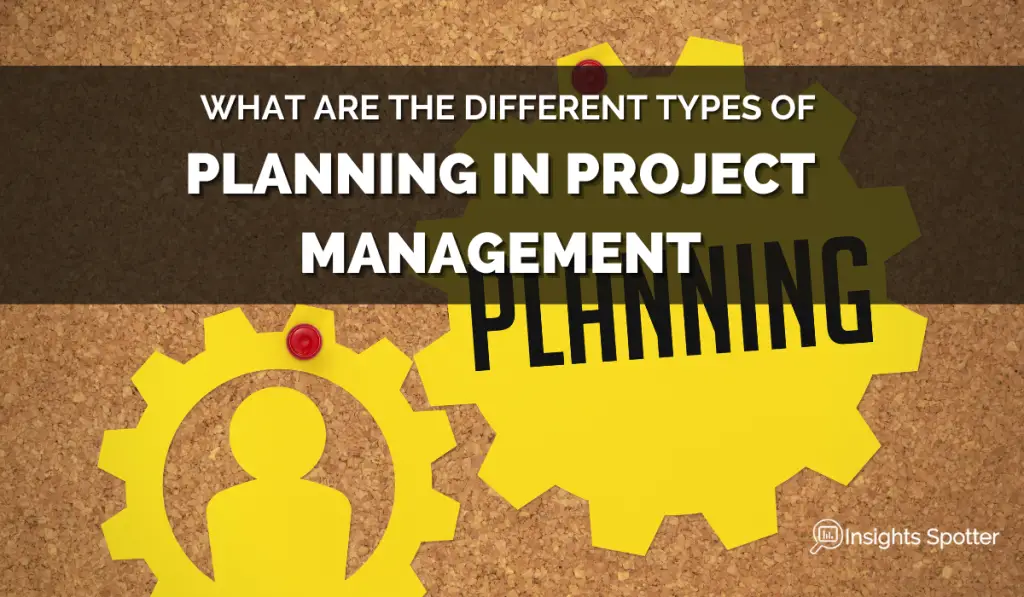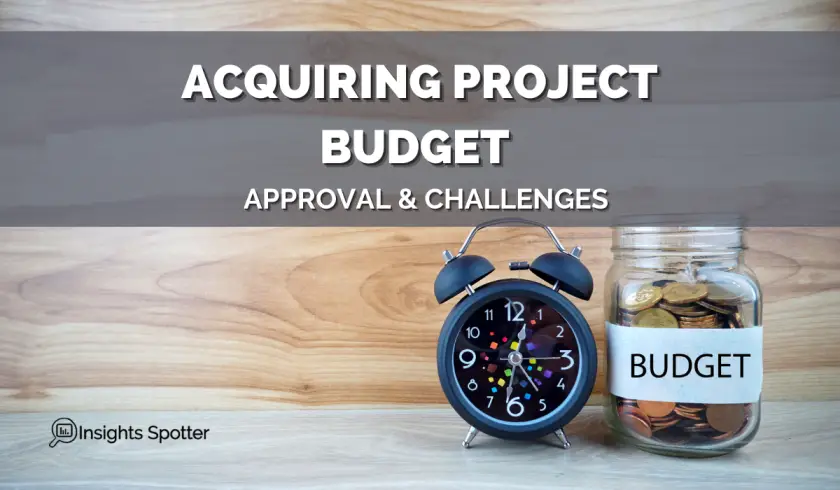Acquiring Project Budget Approval & Challenges
Getting your project budget approved requires problem-solving, communication, and people skills, which are essentially required for any project manager. But if these areas are not your strengths, you may find that task more challenging than it already is.
Keep in mind that to have your budget proposal approved, you must prepare a detailed budget plan, avoid long presentations, use visual aids, prepare for possible questions, and remain confident throughout your delivery.
Read on to learn more about these tips and the challenges you might face when obtaining project budget approval.

Project Budget Approval: What To Prepare?
Before you can even schedule a budget proposal presentation, you must ensure your budget plan meets the company standards and encompasses the necessary details that could speed up its approval.
Although project managers often maintain a general format for the budget proposal, you may want to adopt or at least match your document with that of the company. Whichever way or order you present your budget proposal, ensure it contains the following.
- Budget Structure: This includes how to cost items are classified and how the spending is tracked and monitored. Multilayered projects may consist of various levels or hierarchies. Check with the company or team if they have a specific framework you’re bound to follow.
- Cost Estimates: These include forecasted costs and other specific resources for a determined time and scope.
- Budget Contingency: This pertains to a special budget intended for events beyond cost estimates.
- Presentation: Companies and clients often ask project managers to present their proposals, wherein you’ll need a slide presentation, as well as digital and physical copies of the proposal.

How To Get Your Project Budget Approved?
Projects may come as simple or complex, but getting a budget approval follows the same steps, starting with preparing the budget breakdown and scheduling a presentation.
But completing these stages does not guarantee approval or acceptance of the budget proposal. Keep reading to learn how to get on top of your budget proposal submission and presentation.
1. Avoid a Lengthy Presentation
The last thing you want when delivering your budget proposal presentation is to lead the approving committee or chief financial officer (CFO) into unnecessary details that add no value to the points you intend to convey.
Lengthy presentations are often ineffective, especially if you’re talking about expenses. It could trigger confusion and even irritability.
To avoid this mistake, limit your presentation from five to ten slides and only include the key sections of the proposal. The rest could live in the appendix.
It could also help if you practice and time yourself so you can make possible adjustments. More importantly, focus more on the proposal’s reasoning and the organisation’s benefit.
2. Include Relevant Data in Your Budget Plan
The most important part of your budget proposal is the breakdown of costs. All data has to be reasonable, and the cost elements added should provide value to the project.
Make sure you’re not asking for too much or too little, as these can pose problems in the future. Data suggests that 27% of projects go over budget, which can be a bad look for you as a project manager.
Before submitting your document, ensure that the figures are well thought out, and you have connected with potential vendors and providers for resources.
Still, it doesn’t matter how much effort you will put you will not know the precise numbers for all budget items. The idea is to get to a level of confidence so that you can show this to CFO and demonstrate a level of readiness.
3. Use Visual Elements During the Presentation
Your slide presentation should not necessarily be filled with just numbers. Use visual aids like graphs and charts, especially when discussing allocation and return on investment (ROI).
Tables, graphics, and other data organisers increase recall and make it easier for your audience to understand the presentation. As a result, it has a positive emotional impact that could influence the decision of the approving budget committee or executive.
4. Prepare for Challenging Questions
Creating the budget proposal and the materials you need for the presentation are not enough to win the hearts of the approving committee. You must also anticipate and prepare your answers to possible questions arising during the presentation.
For example, the committee might be interested to know how the ROI of the project compares with the overall cost estimates. This could influence their decision to approve or reject the proposal.
They may also ask questions that gear toward bargainings, such as the possibility of lowering the number of target new hires or alternatives for pricey must-have software and tools. Moreover, they will probably ask how you intend to stay within your proposed budget.
If you identify these questions before the presentation and prepare reasonable answers, you’ll have a better chance of approving your budget proposal.
5. Exude Confidence During Your Presentation
An impeccable budget proposal can go to waste if you show reluctance during your presentation.
Although it can be nerve-wracking to gain the approval of a budget committee or person in charge, you must pay less attention to this feeling and focus on delivering the proposal’s value.
You can gain more confidence by ensuring you have everything you need for the presentation, maintaining a logical flow in your delivery, dressing appropriately, and even giving yourself affirmations.

What Are Some of the Main Challenges of Getting Budget Approval?
Before you can even start creating your budget proposal, it’s imperative to anticipate potential challenges that could impede its approval. Doing so allows you to devise solutions that fit all parties well without compromising the project goal.
Check out some of project managers’ usual hurdles when seeking budget approval.
1. Working on Limited Funding
Not all businesses and organisations have readily available funds to allocate to a project. But a capable project manager works around a definite budget regardless of amount.
Still, it can be quite challenging if the funding limit does not match the grandiose nature or high-tier goal of the project. In such cases, you must narrow the goal or divide the milestones to accommodate the tight budget.
If you’re unsure how to allocate funds for this project type, read my article on how to reduce project costs and run frugal projects.
2. No Proper Coordination
When seeking approval for your project budget, connecting and consulting with different departments, stakeholders, and sometimes contractors can be involved. This can be challenging if you don’t understand the company’s structure.
Plus, others could easily overlook your position, especially if you’ve just been hired for a short-term project. This could result in a lack of coordination and collaboration.
However, with the right people and communication skills, establishing proper coordination throughout the budget approval process can be an easy feat.
3. Poor Value Perception
The foundation of a successful budget approval is highlighting the value of the cost. You have to convince the finance committee or finance officer that the figures you include in the proposal are reasonable and worth the spending. However, this can be a tricky task.
When presenting your proposal, you must emphasise the alignment of the budget with the project goal and the expected benefits or outcomes generated from the approval of the breakdown cost.
4. Ensuring Data Accuracy
Making estimates for each expenditure requires accurate data, touching on costs and resources. Budget proposals rely on logical and precise data to appease the approving body or individual.
You may find this challenging, especially when planning your allocations for a project with a limited budget, as you will most likely need to consider cost-effective alternatives like service providers, number of new hires, and so on.
Find out more about how to run a no-budget project and rise successfully from start to finish.
Lack of understanding of the project

5. Lack of Understanding of the Project’s Objectives due to Communication
Poor communication between the project manager and the stakeholders regarding the project objectives and goals can lead to a lack of understanding of the project, resulting in a lack of support for the project budget.
To ensure stakeholders understand the project, it is important to provide clear and concise communication of the project objectives and goals. Additionally, providing regular updates on the project’s progress can help stakeholders stay informed and engaged.
Additionally, it is important to ensure that stakeholders have the opportunity to ask questions and provide feedback throughout the project.
6. Stakeholders’ Lack of trust Can Prevent Project Budget Approval
Stakeholders may not trust the project manager or the project team, which can lead to a lack of support for the project budget. A Lack of trust can be a significant impediment to the success of a project. When stakeholders do not trust the project manager or the project team, they may be less likely to provide the necessary support, resources and budgets, making it difficult to start a project or, when started, get enough allocated funds for necessary project activities. It can also lead to a lack of support for the project in general, which can result in delays and other problems.
To address this issue, it is essential for the project manager to establish trust with stakeholders through open and honest communication, transparency, and consistently delivering on commitments. The project manager should also make an effort to build strong working relationships with stakeholders and work to understand their concerns and needs.
7. Unclear Budget Information can lead to a lack of Support
It’s essential to have a clear budget for a project, explaining clearly what the funds will be used for and concisely sharing all supporting information. Without a clear budget, it can be difficult to secure funding and allocate resources appropriately. Senior stakeholders’ job is to protect organisations from wasting money, and the PM needs to put some effort and reasoning into validating the budget ask to convince senior stakeholders. It can also lead to misunderstandings and disputes about the scope and goals of the project, as well as difficulties in tracking progress and measuring success.
Having a clear budget also allows you to make informed decisions about the trade-offs that may be necessary to stay within budget constraints. It can also help you to identify potential cost savings or efficiencies and to negotiate with vendors and partners in a more informed manner.
Overall, it’s important to invest the time and effort upfront to establish a clear budget for a project to set it up for success.
8. Organisation’s Political Issues Can Lead to a Lack of Support
Political issues within an organization can lead to a lack of support for a project budget in several ways. For example:
- Different departments or groups within an organization may have competing priorities, and projects may be ranked based on political considerations rather than their potential value or impact.
- An individual or group within the organization may have a vested interest in a particular project or course of action and may seek to block competing projects or redirect resources to advance their own agenda.
- An organization’s leadership may be influenced by external political considerations or pressures, affecting its support for a particular project.
- Political infighting or power struggles within an organization can lead to a lack of support for a project, even if the project itself has merit.
To address these issues, it may be helpful for project managers to engage with key decision-makers and influencers within the organization and to build a strong case for the value and impact of the project. It may also be helpful to involve a diverse group of stakeholders in the planning and decision-making process to build support and minimize the potential for political obstacles.

9. A Lack of Human Resources Can Lead to a Lack of Support
To run a project, you need people, and there are several reasons why you might not get a project budget from senior management teams if people are not available:
- If a project requires more staff or expertise than is currently available within an organization, it may be necessary to allocate additional resources to complete the project successfully. This can include hiring new staff, contracting with external experts, or assigning existing staff to the project. These additional resources may be considered unnecessary or too costly, leading to a lack of support for the project budget.
- If a project is understaffed, it may be difficult to complete the work on time and within budget, leading to cost overruns. This can make it more difficult to justify the budget and secure approval.
- A lack of human resources can also lead to difficulties in communication and coordination, which can impact the overall efficiency and effectiveness of the project. This can lead to a lack of support from stakeholders and decision-makers.
To address these issues, it’s essential for project managers to carefully plan and allocate resources to ensure that the project has the necessary support to succeed. This may include negotiating additional funding or seeking out external resources to supplement the internal team. But most importantly, senior management needs to be on board with your resources plan, so some lobbying is needed.
10. Poor Negotiation Skills
If a project manager cannot negotiate effectively with vendors, contractors, or partners, it can lead to higher costs for the project. This can reduce the overall budget available for the project, or it may require additional funding to be secured to cover the higher costs. This can make it more difficult to justify the budget and secure approval from decision-makers.
Poor negotiation skills can also lead to misunderstandings or disputes about the scope or terms of a project, which can impact the overall success of the project. This can lead to a lack of support from stakeholders and decision-makers.
If a project manager cannot negotiate with internal stakeholders effectively, it can be difficult to secure the necessary resources or support for the project. This can impact the overall budget and success of the project and may make it more difficult to secure approval.
Therefore, effective negotiation skills are important to secure the necessary resources and support for a project. It’s essential for project managers to develop these skills and to approach negotiations with a clear understanding of their goals and priorities.
11. Inadequate Planning
If a project is not well-planned, it may be more difficult to justify the need for the budget and to demonstrate the potential value and impact of the project. This can lead to a lack of support from decision-makers and stakeholders.
Also, Poor planning can also lead to unrealistic budget estimates, which may not be feasible or sustainable in the long term. This can reduce the likelihood of budget approval.
Plus, Inadequate planning can also result in a lack of clarity around the goals and objectives of the project, as well as the necessary resources and steps to achieve them. This can lead to misunderstandings and disputes with stakeholders, which can impact the level of support for the project.
Thus, it’s important to invest time and effort upfront in thorough planning in order to set a project up for success. This includes developing a clear project plan with well-defined goals and objectives, identifying the necessary resources and budget, and anticipating potential challenges and risks.

Other Frequently Asked Questions
What is the importance of project approval?
You can only start your project after getting budget approval first. Companies opt to protect their cash flow and funding by ensuring that budget requests are aligned with their plans, goals, and operations. Hence, budget proposals must undergo a thorough process to ensure that all cost estimates are reasonable and reflect the project’s goal.
Simply put, nothing moves or gets initiated without seeking and getting budget approval. While planning may set the arrow toward the project’s direction, the budget acts as fuel to bring significant work forward.
What are the stages of budget approval?
Companies may have different processes when it comes to budget approval. But what’s certain is whatever the steps are or however they are ordered, they include stages like
- budget proposal preparation,
- document submission,
- budget presentation,
- deliberation,
- and approval.
After the budget is greenlit comes
- execution,
- monitoring,
- audit,
- and evaluation.
If you go over budget, check out these other my two posts:
- WHAT HAPPENS WHEN A PROJECT GOES OVER BUDGET? PREVENT IT
- WHAT TO DO WHEN A PROJECT IS OVER BUDGET? FIX IT

Who is responsible for budget approval?
Some companies have a financial management committee to approve project budgets. Others have their chief financial officer (CFO) or an equivalent executive manager to rubber-stamp the budget proposal. Sometimes, you could have the whole management board considering proposals and approvals.
For smaller businesses, the owner or administrative head likely gives the green light to project budgets. Make sure to confirm with the business higher-ups to whom you should submit or address the budget before crafting the document so you can work the proper tone for the proposal.
Why is it important to budget when selecting a project?
Having a budget not only lets you move from project initiation to execution, but it also sets the limit on certain tasks or ceilings for resource acquisition. Sticking to the budget reinforces the project’s direction and magnifies your skills as a project manager.
You can’t start any big or small project without setting a budget, as the when and how part of the various tasks involved depend on resources. If you’re planning to hire people, or purchase equipment and software, you need to set proper estimates first.
Conclusion
Obtaining project budget approval can be daunting if you don’t know how to prepare and present the budget proposal. But the more you understand how the steps influence others and establish the logic of putting some aspects in the proposal, the easier it becomes.
Follow the tips mentioned above to deal with potential roadblocks during your proposal and get fast budget approval in the end. Good luck, and I hope you will get it!
Subscribe to our newsletter!
 ABOUT ME
ABOUT ME
I am an experienced ex. Business & Data Analyst and now a Project Manager with multiple years of experience gained in several international companies.
These days, business problems require data crunching and telling stories to make the right decisions. Simply put, business stakeholders need insights into their projects and deliveries.
This is where I come in. I have learned and applied Python, Power BI, SQL and Excel to analyse and present data. Also, I gained experience in Project Management and Business Analysis. So, I can not only spot insights but execute business decisions. Moreover, I can teach you as well. Read More
Best Books








Latest Blog Posts
- Sustainable Project Management: Trends, Tools, & Strategies
- Unlocking Strategic Value: How NIST CSF 2.0 Shapes Project Choices for Better Outcomes
- Cybersecurity Project Management: Protecting Your Digital Frontier
- What are the Different Types of Planning in Project Management?

- Transforming Project Management with AI Software: Tools, Challenges, and Best Practices
- Unlocking the Benefits of AI-Powered Project Management
Need Project Manager’s Help!?
Check out the Fiverr marketplace if you do not have time to run your own projects or just need extra help. They do have multiple project professionals, including project managers. Maybe you will find just the right fit to take some burden from you. I have used Fiverr in the past. The prices are also not too bad. If you seek PM via the corporate route, it will be easily 5x the price.


